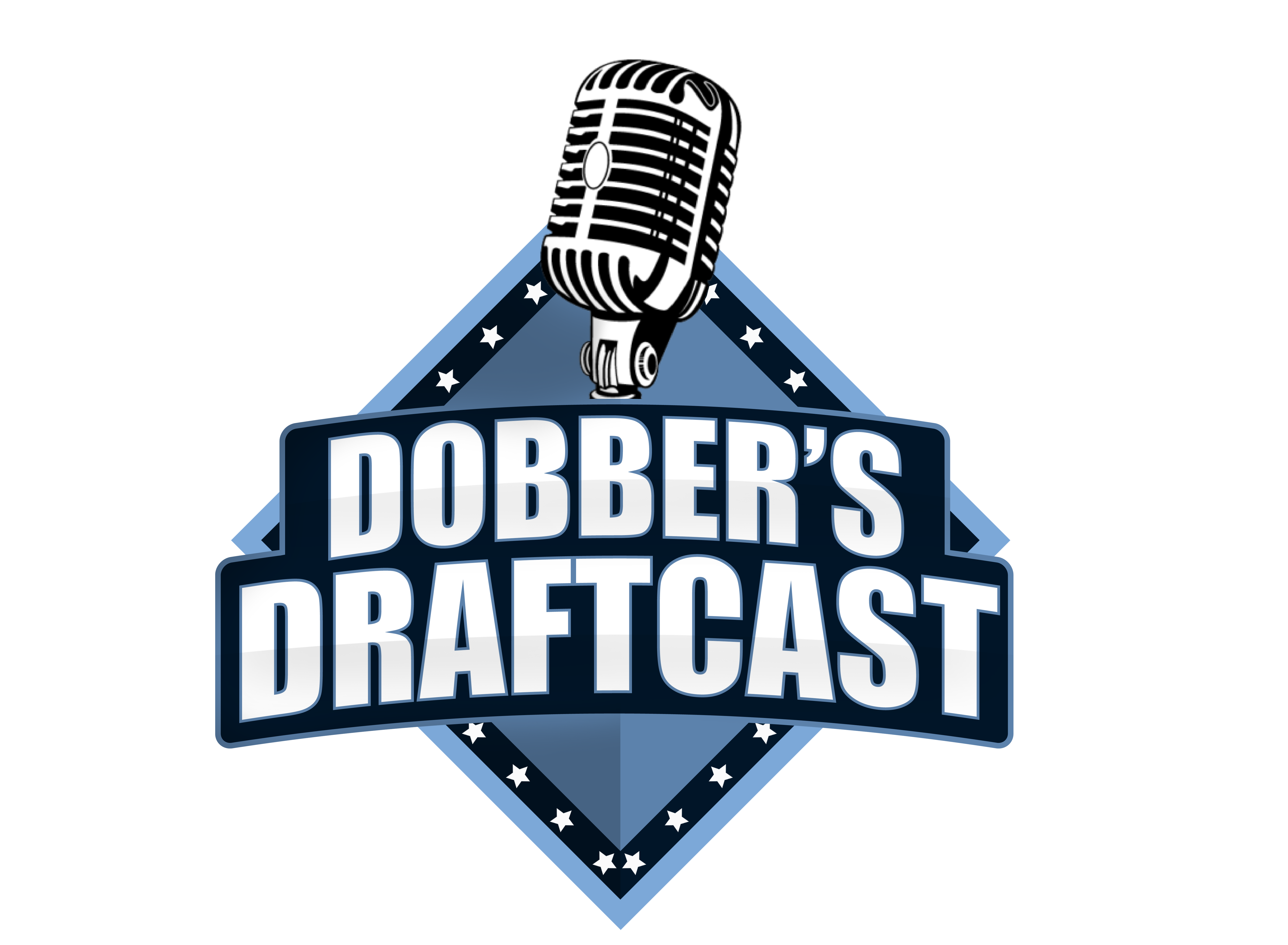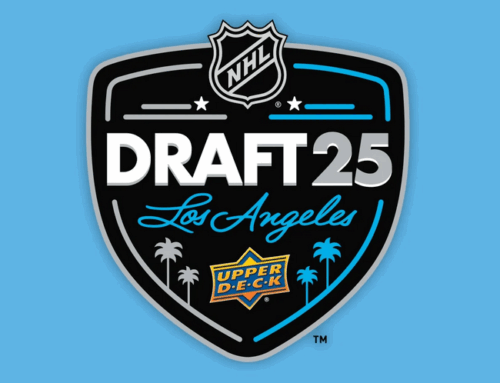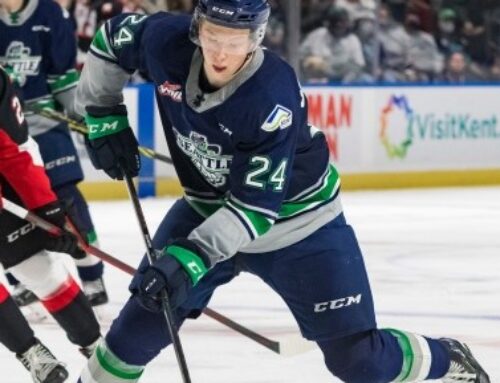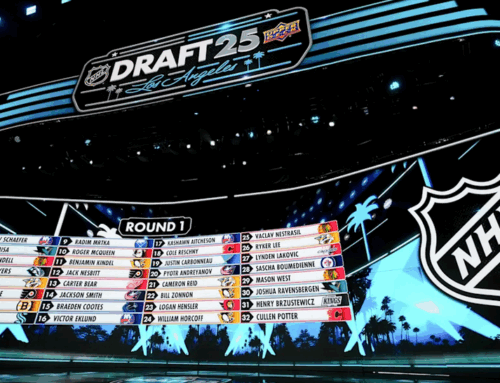Grading the WJC Champs
Rich Dillon
2013-01-12
January 11, 2013
The 2013 WJC displayed some of the top NHL prospects, including many of the top-ranked draft-eligibles for this summer. Team USA featured five first round draft picks and assorted other draft picks, one draft-eligible and one undrafted player. I have assigned a grade for each player for their WJC play and added comments about their fantasy potential in the NHL.
John Gibson (ANA)- Grade: A+. The best player in the tournament, Gibson didn’t have a bad game or allow a weak goal. He is the future starting goalie for the Ducks, perhaps as soon as 2014-15. NHL people in attendance raved about Gibson’s NHL potential.
Jacob Trouba (WPG)- Grade: A. Trouba was outstanding at both ends of the ice, tying for the team lead with nine points and third on the team in shots on goal with 23. He quarterbacked the power-play and killed penalties. Trouba will likely play at Michigan again next season, but it’s unlikely he will see a third year there before turning pro. He will be a fantasy contributor, especially in leagues that count hits.
John Gaudreau (CGY) – Grade: A. Gaudreau had just one assist through the team’s first three games, but exploded in the last four, finishing with seven goals and two assists. The small forward, named to the All-WJC Team, showed off a quick release and a knack for getting to open ice to use it. He is no sure thing due to his size, but offensive skill like Gaudreau has is worth taking a chance on.
Jake McCabe (BUF)- Grade: A. McCabe was named team captain just before the WJC began and he was huge for the Americans. Arguably the team’s most important player besides Gibson, McCabe was called on to play opposite the opponent’s top forwards and was the definition of a shutdown defender. Not known as a scorer, he scored three goals (including two in the semi-final victory over Canada) and added three assists. McCabe is still probably three or so years from NHL action and projects as a two-way type when he gets there.
Alex Galchenyuk (MTL)- Grade: B+. There were a few games where Galchenyuk was the team’s top forward, a couple where he was good and a couple where he wasn’t very noticeable. That inconsistency is not uncommon in young players and his future is very bright. Galchenyuk has a chance to break camp with the Canadiens next week but may be a year or two from having a fantasy impact. Galchenyuk has 80 point potential.
J.T. Miller (NYR)- Grade: B+. Miller quietly had himself a nice tournament for the Americans, tying for the team scoring lead and pacing the team with seven assists. Miller had been struggling a little in the AHL prior to the WJC, which is not uncommon for a 19-year-old, but was confident and consistent at the WJC. The Rangers are high on their former top pick, so he will be given time to develop. Miller looks to be a second-line secondary scorer type.
Seth Jones (2013)- Grade: B+. Jones flashed his elite physical skills at times during the WJC and at times looked like a special player who can control a game. He had seven points, but despite the announcers showering him with praise, Jones wasn’t perfect. He made some questionable decisions and lost some one-on-one battles in his own zone. A certain top-three pick in June, don’t be shocked if he plays another season in junior prior to becoming an NHL fantasy fixture.
Vince Trocheck (FLA)- Grade: B+. Trocheck made contributions in several ways to the success of the team, throwing checks, killing penalties and scoring goals. An aggressive player who plays bigger than his size, Trocheck’s three goals and six points were a pleasant surprise. He is a few years away, and currently projects as a bottom-six forward, but if his scoring touch continues to develop he could be a several category guy.
Jim Vesey (NSH)- Grade: B+. Vesey began the WJC as the thirteenth forward, apparently narrowly beating out Stefan Matteau for the final forward spot, but steadily earned more and more ice time with his play. He played on every line, including time on the top line where he was a consistent threat. Vesey will need more NCAA and AHL seasoning but has surfaced on the prospect radar thanks to this showing.
Riley Barber (WSH)- Grade: B. Barber finished with three goals and six points, while placing second on the team in shots with 24. Barber showed good offensive instincts, proving his fast start in his college career is no fluke. The Capitals will give Barber time to get strong and round out his game, but he could move quickly up the prospect charts. One to keep an eye on.
Cole Bardreau (Free Agent)- Grade: B. The undrafted Bardreau was an effective penalty-killer and checker for the U.S. and chipped in a goal and two assists. Provided he is signed by an NHL team at some point, he is not a fantasy prospect.
Ryan Hartman (2013)- Grade: B. Hartman played his checking role very well and also scored twice. He is having a solid OHL campaign and should go late in the first or early in the second round of the draft in June. He projects as more of a multi-category fantasy guy than one who will score a lot of points.
Sean Kuraly (SJ)- Grade: B-. Kuraly was a solid performer for the team, but not terribly productive considering he enjoyed skilled linemates most of the tournament. He is considered a middling prospect in the Sharks’ system.
Tyler Biggs (TOR)- Grade: B. Much like Hartman, Biggs embraced his checking role and played it with passion. His gritty play and occasional big hits provided a spark to the team at opportune times. Despite being a former top pick of Toronto, Biggs doesn’t project to be a big scorer at the NHL level. Keep in mind that many power forwards don’t blossom until their early to mid 20’s.
Mike Reilly (CBJ)- Grade: B. Reilly excels on the power-play, but the hot hands of Trouba and McCabe cut into his opportunities and his production. The good news is that Reilly was good at even-strength when called on, and showed good skating ability. His ceiling is a Michael Del Zotto type player, but he is several years of work away.
Rocco Grimaldi (FLA)- Grade: C. I’m sure I will hear it for giving the hero of the Gold Medal game a C, but the truth is that Grimaldi did nothing prior to that game. Starting in the top six, he steadily worked his way down to the fourth line and finally to the bench for a game. With that being said, he was outstanding in the final game and showed great quickness and offensive ability. Grimaldi will have to prove himself in the AHL when he turns pro in a couple of years.

Thanks for reading. You can follow me on Twitter @RichDillon17 if you’re into that sort of thing.





